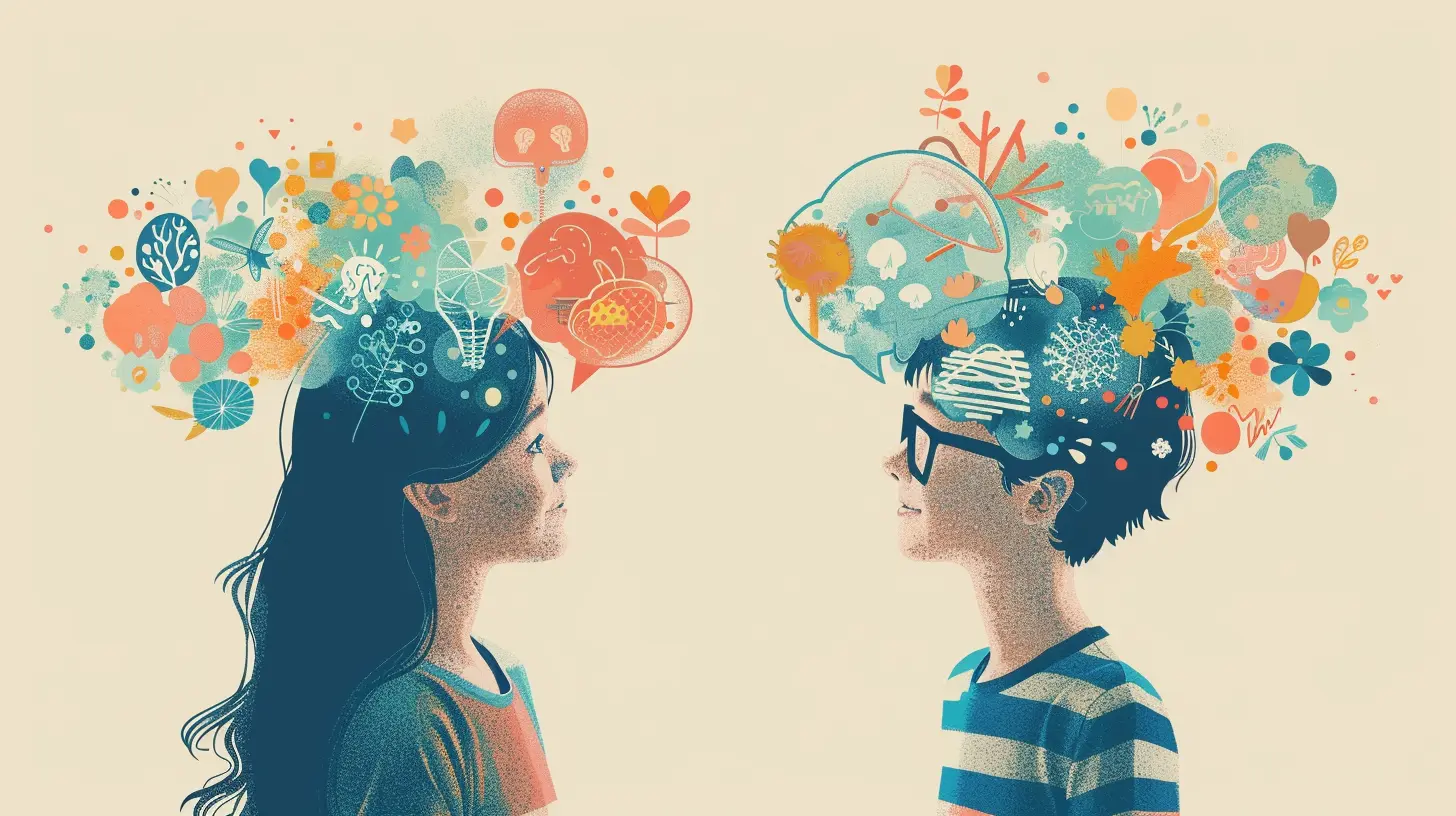How Learning Two Languages Strengthens Memory Retention
9 June 2025
Let’s be honest — remembering stuff isn’t always easy. Whether it’s where you left your keys, what you had for dinner last night, or that test you studied for weeks ago, we all have those “uh-oh” moments. But what if there was a legit way to give your brain a memory upgrade? Kind of like adding more gigabytes to your brain’s hard drive?
Well, that’s where language learning — especially learning two languages — comes in. It’s not just about becoming fluent or impressing people at parties. Learning and juggling more than one language can actually make your memory stronger. Sounds unbelievable? Stick with me. We’re about to unpack how picking up a second language can be one of the best things you do for your brain.
The Science Behind Language and Memory
First things first — let’s talk about how memory works.Your brain’s memory system is split into different types: short-term, long-term, and working memory. Working memory is like the scratchpad of your brain — the active space where you hold and use information. Think of it like juggling balls in the air. The more balls (or info) you can juggle, the sharper your mind is.
Now, here’s where language learning steps into the spotlight.
When you’re learning two languages, you're constantly switching between vocabularies, grammar rules, and sentence structures. That back-and-forth is a serious workout for your working memory. It’s like brain CrossFit — intense, sweaty, and 100% worth the effort.
How Bilingualism Enhances Memory Retention
1. Mental Gymnastics: The Brain’s Daily Workout
Trying to recall the right word in a second language forces your brain to slow down and search. And guess what? That search process improves your ability to store and retrieve information. It’s like playing mental hide-and-seek every time you speak or translate — and it boosts your brain’s endurance.Studies show that bilinguals often outperform monolinguals when it comes to memory tasks. That’s because their brains are wired to remember more, recall faster, and switch smoother between chunks of information.
2. Bilingual Brains Build Better Connections
Think of your brain as a network. Each word you learn is like a new node. When you speak two languages, you're hitting double the connections. The more you use these languages, the stronger those connections become.This enhanced connectivity leads to faster processing speeds and higher retention. In simple terms? You remember more without even trying — because your brain is just getting better at doing its job.
Neurological Benefits of Learning Two Languages
1. Boosts Hippocampus Function
The hippocampus is the part of your brain responsible for memory formation. When you study two languages, you activate and strengthen this region. MRI scans of bilingual speakers often show more activity — and even more gray matter — in their hippocampus compared to monolingual individuals.It’s almost like adding muscle mass to your brain’s memory center.
2. Improves Neural Plasticity
Neural plasticity refers to your brain’s ability to reorganize itself by forming new neural connections. And you know what strengthens this ability? Multilingualism.Learning two languages doesn’t just help you remember vocab — it helps you adapt, respond to, and process new information more efficiently. That means better long-term memory retention and quicker learning in other subjects too (yes, even math).
The Real-Life Impact of Stronger Memory
1. Academic Performance Skyrockets
Memory plays a huge role in academic success. From memorizing formulas to recalling historical dates, sharper memory means better grades. Bilingual students often find that their improved working memory helps them multitask better and stay focused longer.Ever wonder why some students seem to “get it” faster? They may just have better memory capacity — and their bilingual background could be a secret weapon.
2. Reduces Risk of Cognitive Decline
Let’s fast forward a few decades. Bilingualism has been linked to delayed onset of dementia and Alzheimer’s. That’s right — speaking more than one language keeps your brain younger for longer.The mental juggling it takes to switch between languages helps keep your neural pathways active and strong, even into old age. It’s like giving your brain a lifetime warranty.
3. Better Problem Solving and Critical Thinking
Memory isn’t just about remembering names or numbers — it’s also about how well you can use that information. Bilingual brains are trained to analyze context, infer meaning, and adapt on the fly. These skills translate directly into better problem-solving.Next time you’re on a tight deadline or trying to crack a complex problem, those dual-language skills might just save the day.
Cognitive Flexibility: The Unsung Benefit
Let’s break this down with a simple analogy.Imagine your brain as a smartphone. A monolingual brain is like an iPhone with one app running. A bilingual brain? It’s got two high-powered apps running side by side — switching between them without freezing or lagging.
That ability to shift gears smoothly and quickly is called cognitive flexibility. And it’s a direct result of memory training through language learning. With higher cognitive flexibility, you’re better at adjusting to new situations, multitasking, and remembering key details.
The Power of Early Exposure… But It’s Never Too Late
Sure, kids who grow up bilingual often show stronger memory from the get-go. Their brains are like sponges, and they soak up languages effortlessly.But here’s the good news — starting later still gives you major benefits. Adult learners show improved short-term and long-term memory just by committing to consistent language practice.
It’s like going to the gym in your 40s. You might not catch up with that super-fit 20-year-old, but you’ll still build strength, resilience, and mental sharpness.
Practical Ways to Use Two Languages to Boost Memory
1. Daily Practice = Daily Brain Gains
Consistency is key. Use both languages daily, even if just for a few minutes. Text a friend, read the news, or label items around your house in both languages. Your brain thrives on repetition and usage.2. Mix Your Worlds
Watch TV shows with subtitles, switch your phone language settings, or write a journal entry using both languages. The more you integrate both languages into your routine, the more your brain flexes its memory skills.3. Teach Someone Else
Teaching is the ultimate test of memory. Explaining a concept in your second language forces you to recall and reorganize information. This deepens your understanding and strengthens your recall muscles.FAQs About Language Learning and Memory
Does learning more than two languages boost memory even more?
Yes, but with a twist. While each additional language adds a layer of complexity, the real benefit comes from how actively you use them. It’s not just about how many languages you know — it’s how often you use them.Will I lose the benefits if I stop practicing?
Practice makes perfect — and practice keeps memory sharp. If you don’t use it, you’ll start losing it. But even if you’ve been away from a language for a while, jumping back in can reactivate those old memory circuits.Is it harder to learn two languages at once?
It can be, depending on how similar the languages are and your personal learning style. But even if it feels hard, that challenge is exactly what trains your brain and enhances memory.Final Thoughts
So, does learning two languages strengthen memory retention? You better believe it.From boosting your working memory and improving academic performance to delaying cognitive decline and enhancing problem-solving skills — being bilingual is like giving your brain a secret superpower.
And the best part? It doesn’t matter when you start. Whether you're 5, 25, or 55, your brain is ready to level up.
So go ahead — pick up that second language. Your brain will thank you.
all images in this post were generated using AI tools
Category:
Bilingual EducationAuthor:

Monica O`Neal
Discussion
rate this article
2 comments
Ivy Whitaker
Learning languages not only boosts memory but also opens doors to new cultures!
June 11, 2025 at 2:28 AM

Monica O`Neal
Absolutely! Learning languages enhances cognitive abilities while enriching cultural experiences. It's a win-win!
Natasha Barron
Bilingual brains: where memory retention gets a double espresso! Learning two languages not only broadens your horizons but also sharpens your recall. Who knew that mastering "hello" in two tongues could make you a memory maestro?
June 10, 2025 at 3:15 AM

Monica O`Neal
Absolutely! Bilingualism truly enhances cognitive abilities and memory retention, proving that learning languages can be a powerful tool for brain development.


